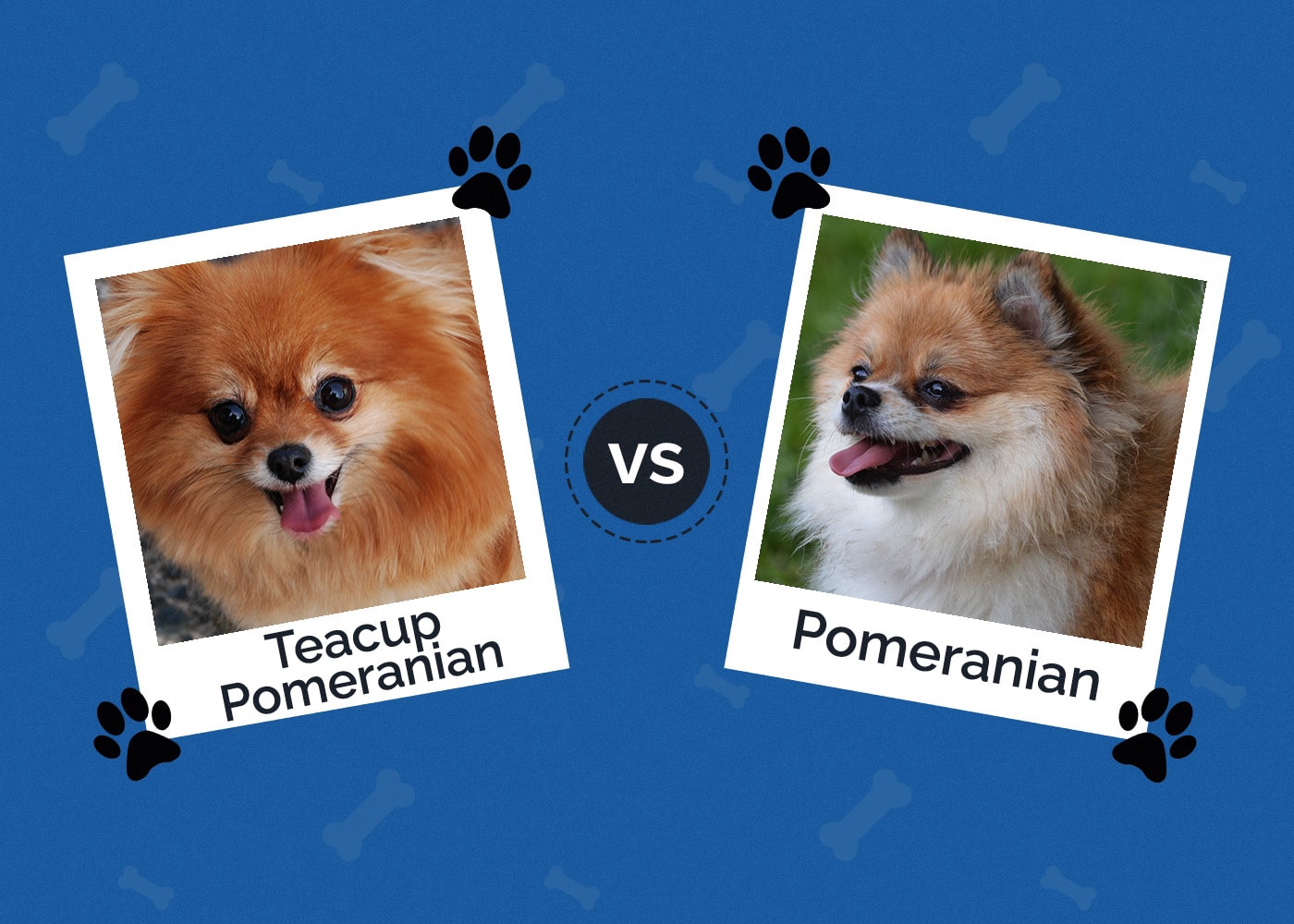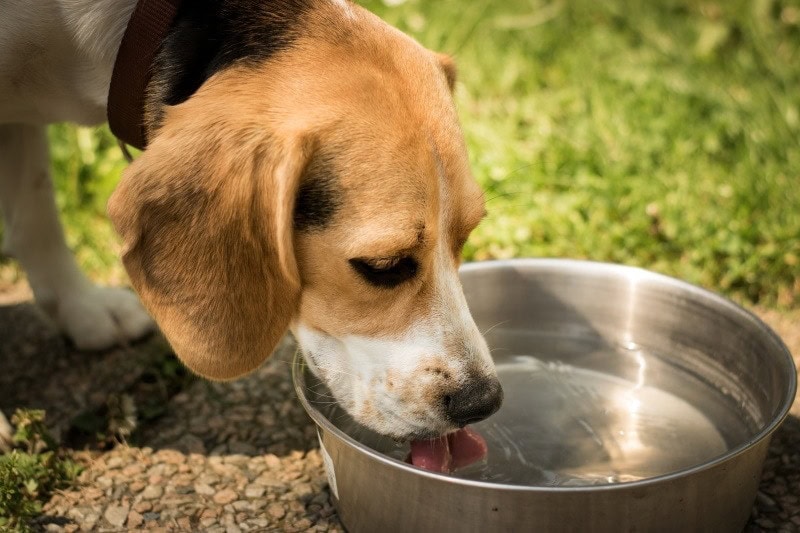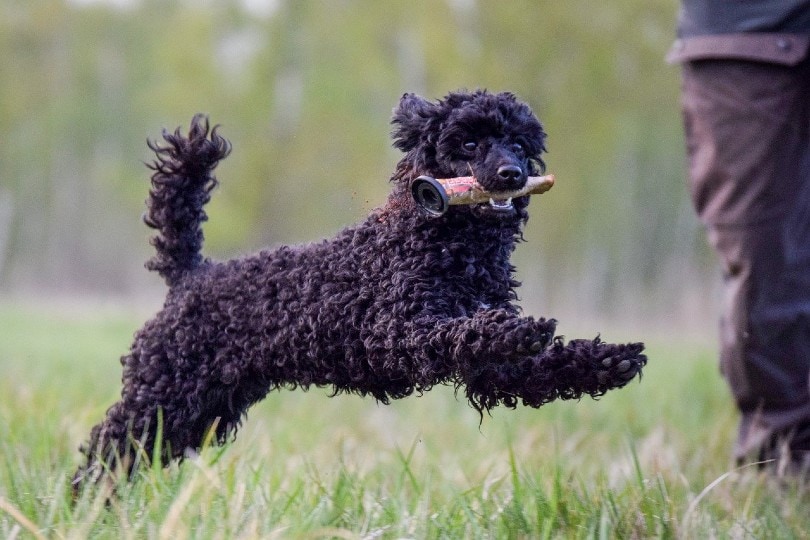Leonberger vs Bernese Mountain Dog: Which One is Right for Me? (With Pictures)

Updated on
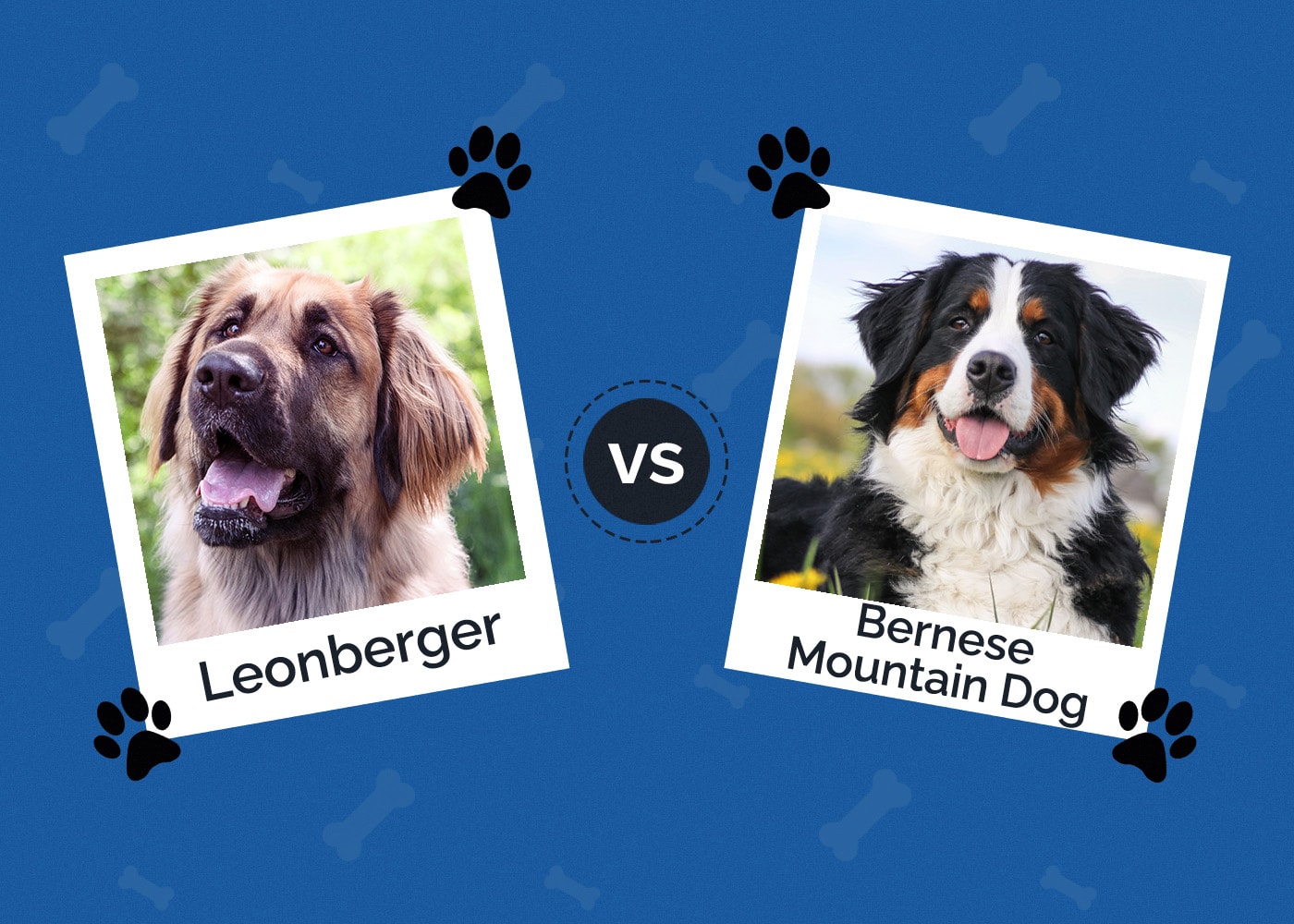
The Leonberger and the Bernese Mountain Dog are two of the most popular large-breed dogs. Both breeds have their own unique traits, which can make either one a great fit for any owner. In order to decide which breed is right for you, it’s important to consider several factors, such as size, temperament, exercise needs, coat care requirements, and health issues. Read on to learn more about these two breeds and see which one might be right for your lifestyle.
Visual Differences
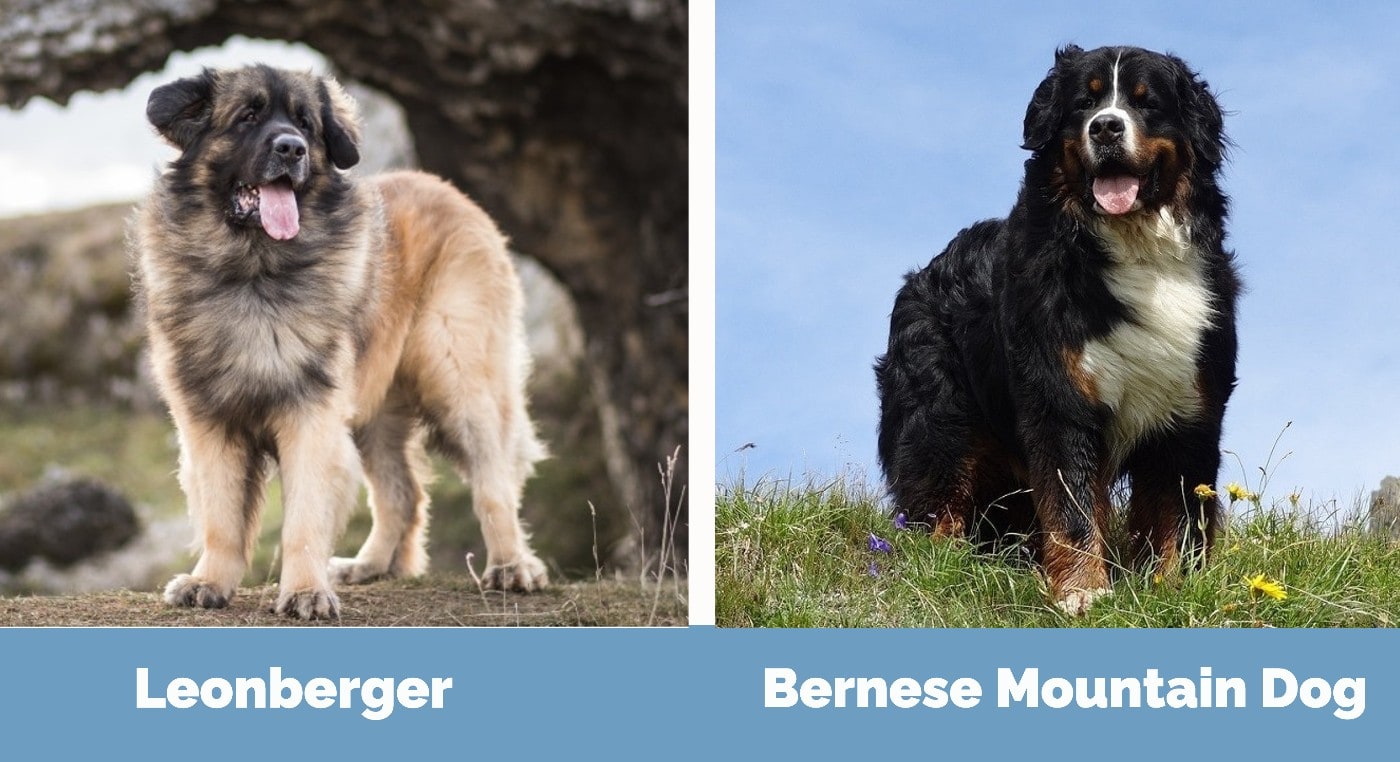
At a Glance
- Average height (adult): 28 – 32 inches
- Average weight (adult): 110 –170 lbs.
- Lifespan: 8 to 10 years
- Exercise: High energy, needs a lot of exercise
- Grooming needs: Medium, requires coat and nail care
- Family-friendly: Makes an excellent family pet
- Other pet-friendly: Known to get along well with other pets
- Trainability: Intelligent but stubborn
- Average height (adult): 25 – 28 inches
- Average weight (adult): 75–115 lbs.
- Lifespan: 7-10 years
- Exercise: High energy, needs lots of exercise
- Grooming needs: High, requires heavy coat care
- Family-friendly: Makes an excellent family pet
- Other pet-friendly: Known to get along with other pets
- Trainability: Intelligent but can be stubborn at times
Leonberger Overview
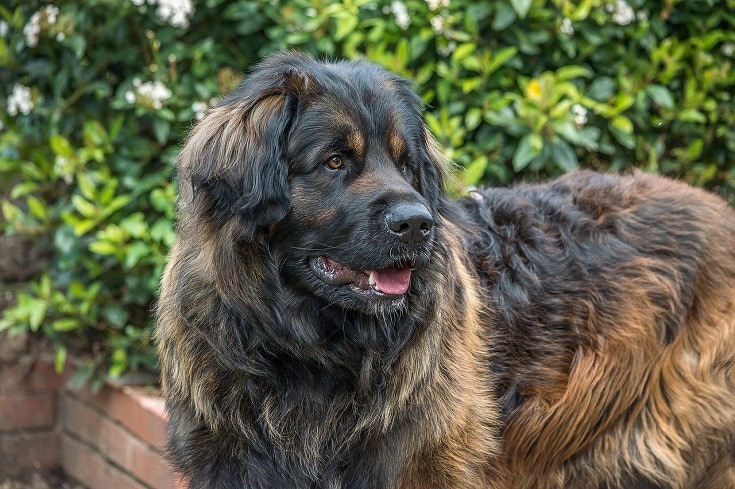
The Leonberger is a large and powerful dog, with a strong and symmetrical body. They have long legs, big heads, and deep chests. Their coat is shaggy and thick, usually coming in colors of black, red-brown, yellow-red-brown or sand. This breed was developed to be gentle and loyal to its owners, making it a great family pet. Leonbergers are usually friendly and good-natured with people and other animals, though they can be protective of their families if needed. They need lots of exercise and regular grooming to keep their coats in tip-top shape.
Personality / Character
The Leonberger is a highly sociable breed that loves to be around people and other animals. They are very smart, loyal, and devoted to their families. Leonbergers are usually gentle and good-natured, making them an ideal pet for people with children or other pets. They are also known for being eager to please and easy to train.
Training
Leonbergers are usually quick to learn, making training relatively straightforward. They do have a bit of a stubborn streak, however, and can be hard to motivate at times. It is important to keep training sessions positive and rewarding, as this will go a long way towards ensuring your Leonberger learns quickly and retains their commands.
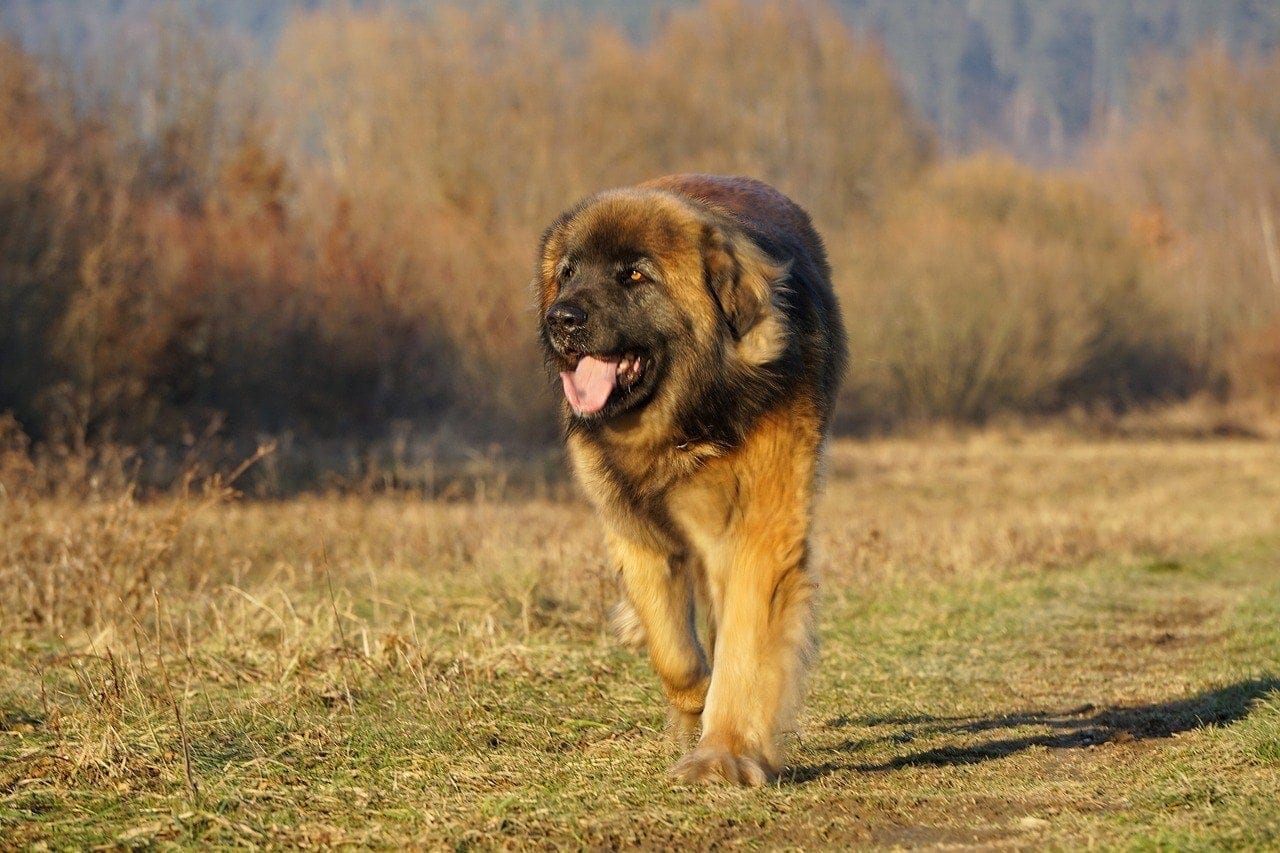
Health & Care
Leonbergers are generally healthy dogs, but they can be prone to some health issues such as hip dysplasia and arthritis. They need lots of exercise, a well-balanced diet, regular checkups with the vet.
- Bloat
- Eye problems
- Skin allergies
Intelligence
Leonbergers are highly intelligent dogs that can learn basic commands and tricks relatively quickly. They are also very loyal and devoted to their owners, making them excellent pets for families. They can be quite independent, so it’s important to provide them with plenty of attention and mental stimulation.
Suitable For:
The Leonberger is a great choice for families who have the time to devote to training and exercise. They are loyal, devoted pets that make excellent companions for both adults and children. Due to their size, they may not be suitable for those in small homes or apartments.
Bernese Mountain Dog Overview
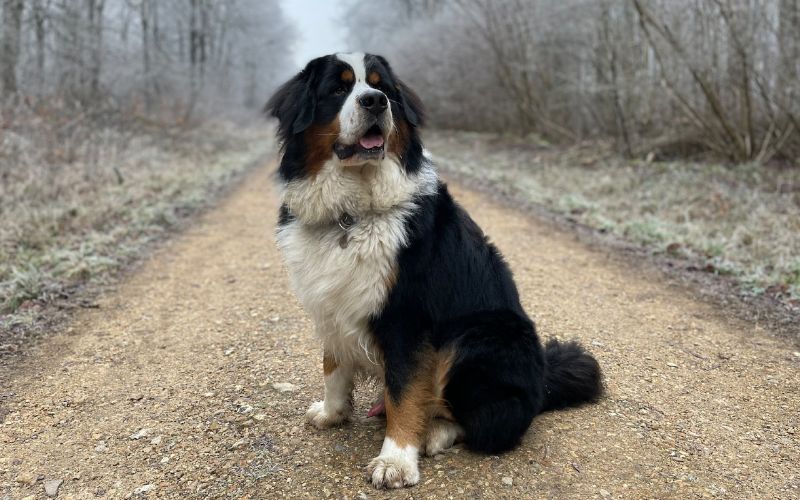
The Bernese Mountain Dog is a large, sturdy breed of working dog. They have long, thick coats in colors of black, white, and rust. The head is broad and flat with a wide muzzle and dark eyes. Bred for hard work on the farms of Switzerland, these dogs are strong and resilient with an eagerness to please their owners.
Personality / Character
Bernese Mountain Dogs are loyal and devoted pets that thrive off affection and companionship. They are usually gentle and good-natured around people and other animals, though they can be protective of their families if needed. They need plenty of exercise to stay healthy and happy, making them a great choice for those with active lifestyles.
Training
Bernese Mountain Dogs can be stubborn and hard to train at times, so it is important to remain consistent with their training and rewards. They are intelligent dogs that learn quickly when motivated and rewarded properly. As with any breed, positive reinforcement is key!
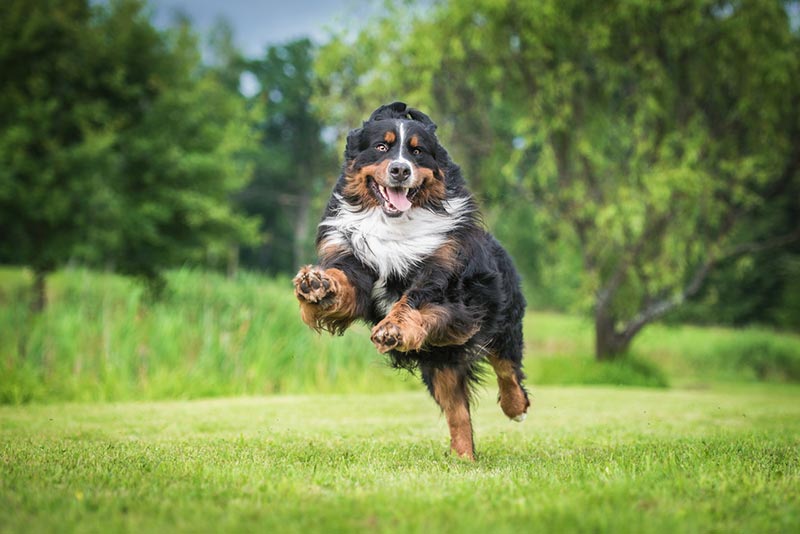
Health & Care
The Bernese Mountain Dog is a large breed of dog that requires ample exercise and regular grooming to stay healthy and in top condition. They can be prone to hip dysplasia, elbow dysplasia, and other joint ailments, so regular checkups with the vet are recommended.
- Hip dysplasia
- Elbow dysplasia
- Bloat
- Eye problems
- Skin allergies
Intelligence
Bernese Mountain Dogs are highly intelligent and can learn basic commands quickly. However, they may be difficult to train due to their stubborn streak. It is important to provide plenty of patience and rewards when training your Bernese Mountain Dog.
Suitable For:
The Bernese Mountain Dog makes an excellent family pet thanks to its loyal, devoted nature and loving personality. They require plenty of exercise to stay healthy and in good shape, making them a great choice for those with active lifestyles. They are also quite gentle and patient around children, though they may be protective of their families if needed. However, like the Leonberger, Bernese Mountain Dogs are large dogs and may not be suitable for apartment living.
What Both Breeds Have in Common
Both breeds are highly intelligent with an eagerness to please and a willingness to learn. They also require plenty of exercise and mental stimulation in order to stay healthy and happy. Both breeds are also prone to some health issues, so it is important to keep up with regular vet checkups. They’ve also both been called gentle giants by the people who love them.
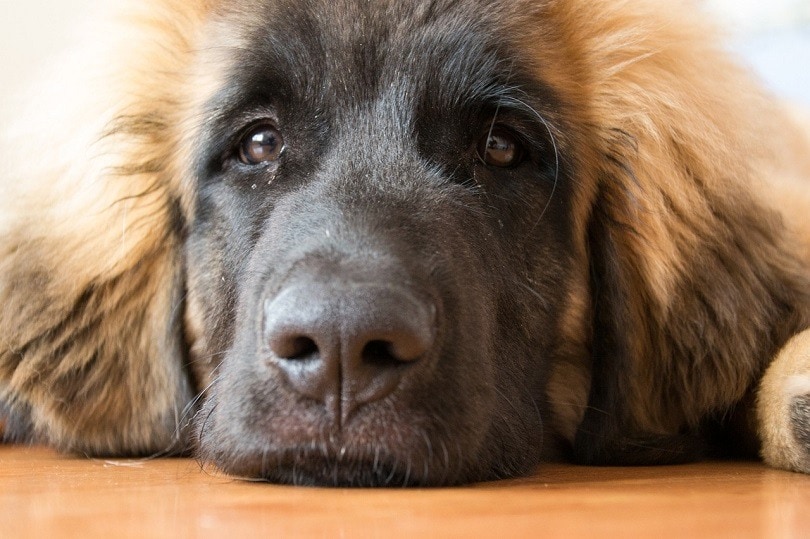
Biggest Differences Between the Two Breeds
- Size – The Leonberger is a giant breed, weighing up to 170 pounds while the Bernese Mountain Dog tops out at about 110 pounds.
- Coat – The Leonberger’s coat is shaggier and requires more frequent brushing and trimming than the Bernese Mountain Dog.
- Temperament – The Bernese Mountain Dog may be better suited for families with children due to its patient and tolerant nature.
The Challenges of Raising a Large Dog
Raising any type of dog, regardless of size, comes with its own set of challenges. With a larger breed like the Leonberger or Bernese Mountain Dog, you must be prepared to provide ample exercise and mental stimulation in order to keep them happy and healthy. Training is also essential for these breeds as they can become stubborn if not properly taught how to behave.
Additionally, it is important to keep up with regular vet checkups in order to monitor their health and catch any potential issues early on. Oh, and don’t forget, the bigger the dog, the bigger the appetite! Food bills for big dogs can stack up quickly. Add in treats, chew toys and extra-large beds and you’ll soon find that the bigger the dog, the more expensive they are also.
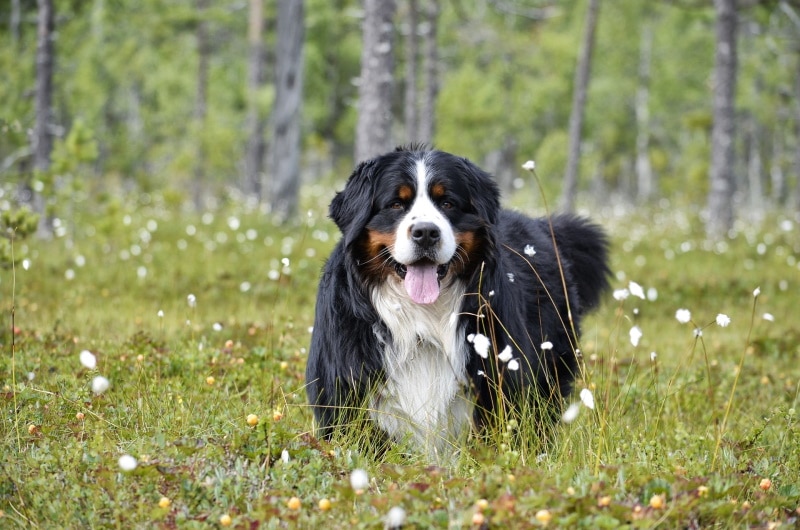
The 10 Tips for Choosing a Responsible Breeder
If you decide to get a Leonberger or Bernese Mountain Dog, it is important to choose a responsible and reputable breeder. Here are 10 tips for finding the right breeder:
- Do your research – Research breeders both online and in person before committing to one.
- Ask questions – Be sure to ask the breeder questions about their breeding program, the health of their dogs and other important information.
- Visit the kennel – It is important to visit any potential breeders’ kennels to get an idea of how they care for their animals.
- Check references – Ask for and check references from past customers.
- Avoid pet stores – Responsible breeders never sell their puppies to pet stores, so avoid them at all costs.
- Meet the parents – Meeting the parents of any potential puppy is important in order to get an idea of the pup’s temperament and health history.
- Look for other puppies in the litter – An ideal breeder will have multiple puppies from the same litter, which is a sign of a healthy breeding program.
- Ask for medical records – Request to see medical records and certificates for both the parents and puppies.
- Look for socialization – A reputable breeder will provide early socialization for the puppies before they go to their new homes.
- Beware of guarantees – Many breeders offer health or temperament guarantees, but it is important to read all the fine print and understand exactly what you are signing up for.
Which Breed Is Right for You?
Both Leonbergers and Bernese Mountain Dogs make great family pets, but they have several distinct differences. The Leonberger is a giant-breed dog that originated in Germany while the Bernese Mountain Dog is a Swiss breed. In terms of temperament, both breeds are loyal, gentle, devoted companions with plenty of love to give. However, the Bernese Mountain Dog may be better suited for families with children due to its patient and tolerant nature.
Conclusion
No matter which breed you choose, make sure to do your research beforehand so that you can provide the best care possible for your pet. Both breeds require plenty of exercise and attention, so be prepared to commit time and energy into making them happy and healthy. With some patience and dedication, these noble breeds will make wonderful lifelong companions!
Featured Image Credit: (L) Angela Buser, Shutterstock | (R) Eve Photography, Shutterstock




